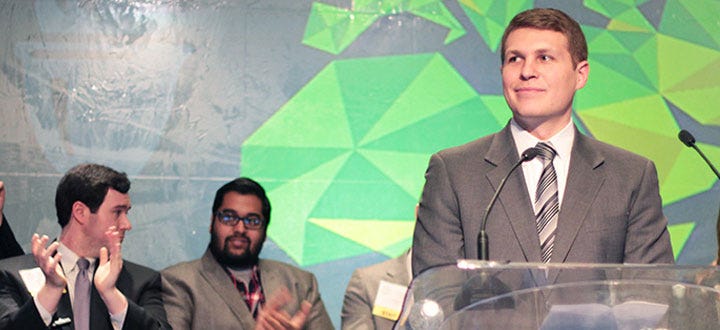Alexander McCobin is the president and cofounder of Students For Liberty (SFL), an organization whose mission is to provide a worldwide, unified, student-driven forum for students dedicated to liberty. I recently had the pleasure of interviewing Mr. McCobin about SFL, its achievements to date, and its future. —Robert Begley
Robert Begley: Thank you for t…



